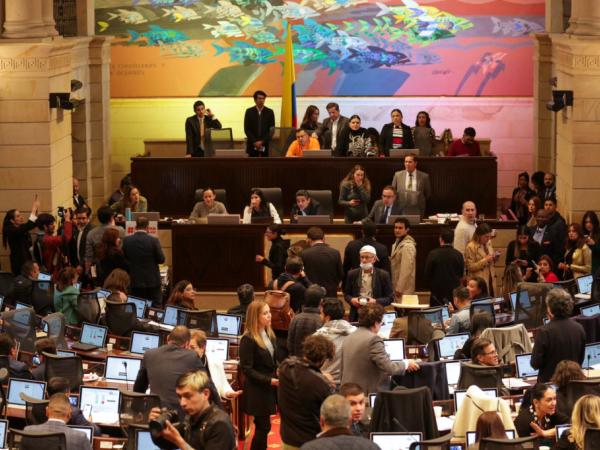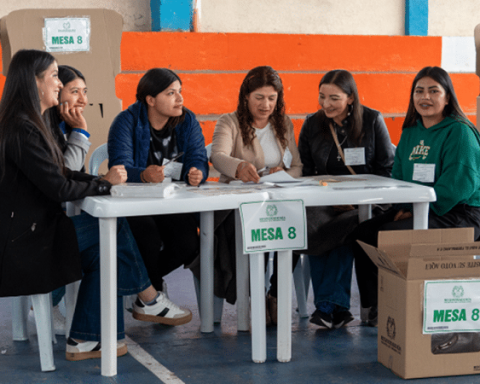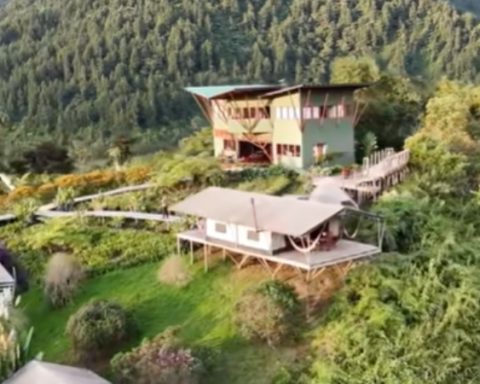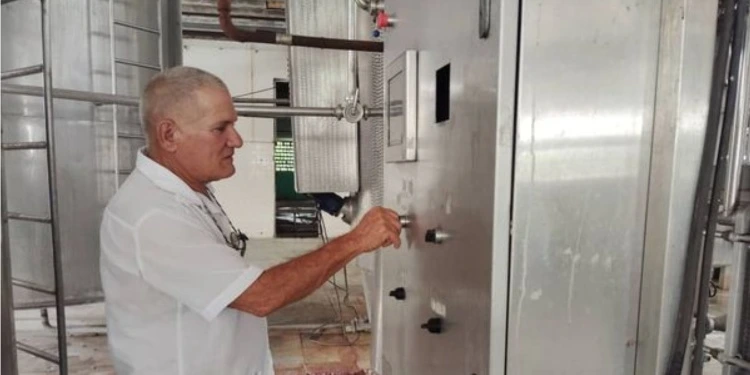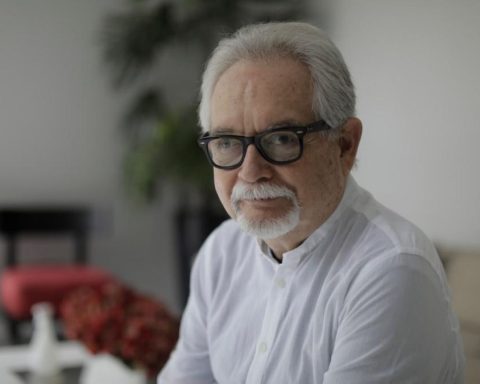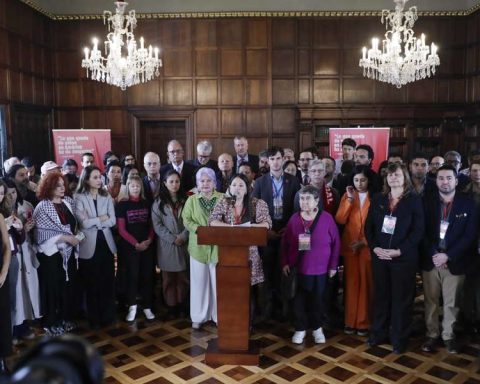The Congress of the Republic officially has seven weeks left to finish the first part of the 2024-2025 legislative period, and once again the procedures for social reforms and initiatives of the National Government are accumulating, thereby generating expectations to focus on whether the times will be fulfilled for each one of these projects, or some will run the risk of sinking due to lack of processing.
Counting the financing law, there are at least six bets from the House of Nariño that are currently taking place in the committees and plenary sessions of the House of Representatives and the Senate, where the question is whether the political capital of President Petro and his ministers It is enough to move them forward, especially taking into account the friction and disagreements that arose with the ‘little game’ that was played during the pension reform.
More news: Merchants reveal their letters about the minimum wage: the proposal would be in one digit
A law for the Budget
Without a doubt, the most important in the bouquet of official initiatives is the financing law, a project with which the Ministry of Finance seeks the $12 billion that it needs in the General Budget of the Nation for 2025, through changes in the regulations. taxes and strategies, how to advance compliance with the fiscal rule and the same green fiscal rule to promote sustainable projects.
Congress.
THE TIME
Juan Pablo Gallo, president of the Third Commission of the Senate, said that at this moment they are waiting for the appointment of speakers, a task that they hope to have completed in the coming days, while making it clear that it is a project that does not concern them. It is very popular because of the impacts it can have on the economy.
“We are really very concerned about this bill. In recent yearsSince 1990, 22 tax reforms have been approved. The overwhelmed pockets of Colombians cannot tolerate one more tax reform. But adding to this that Colombia is one of the countries with the highest effective tax rate on the planet, only surpassed by some African economies and Venezuela, among others,” said Gallo.
Meanwhile, Wadith Manzur, member of the Third Commission of the Chamber, said that he is not worried about the timing, but stressed that it is necessary that before the debate begins, the decree that will regulate the General Budget of the Nation of the 2025, so as not to sign a blank check.
“The time is perfectly enough for the discussion of the financing law. It is a law that is processed as if it had an urgent message, that is, it is discussed in joint, third and fourth committees of the Senate and the House, and is processed in parallel in the plenary sessions of the Senate and House. No It needs more than four weeks to be approved and discussed in Congress,” he said.
For reading: This is the plan of the Cartagena Refinery to avoid power interruptions
Labor, with greater resistance in the Senate
On the other hand, after an extensive battle in the House of Representatives, the labor reform is getting ready for its presentation in the Senate of the Republic, where it will face greater resistance, since the sectors related to the Government are fewer in this part of Congress. and the opposition made it clear that they will not allow an express procedure, as has happened in other scenarios.
According to Legislative sources, this project is expected to be presented at the end of October in the Senate, because at this moment work is being done on the structuring of the articles and the inclusion of the endorsed proposals, while there is dialogue between the interested parties for the selection of the speakers.

Congress of the Republic.
THE TIME
In health, waiting for a presentation
In the case of the health reform, the representative to the Chamber for the Democratic Center, Andrés Forero, highlighted that at this moment the articles are in the process of preparing presentations, where some of the congressmen are trying to change some points of the text.
“They have tried to do a judicious job of collecting what was discussed at the technical tables, but we feel that there is still resistance from part of the Government. Let’s finally see what they end up presenting as a presentation,” he noted.
Likewise, he explained that a negative presentation will be presented, because the current text does not solve the problems of the Colombian health system, “even if it is approved, it will come into force in two years, that is, the problems that are being experienced at this moment and will continue in what remains of Gustavo Petro’s government.”
The presentations will probably be filed in the next few weeks.so it is possible that discussions on the transformation of the health system will begin in the first weeks of November in the Seventh Commission of the House.
“There are rumors that the Government intends to send an urgent message, but it seems that they realized that with this they were going to stop the discussion of the labor reform in the Senate. It seems that they are going to give up on that bad idea, because that went against what Minister Cristo himself had said,” he highlighted.
You may be interested in: Unprecedented dispute for the presidency of Acopi: who will lead the union
Agriculture and education
On the other hand, in terms of agriculture, regarding the part of the agrarian jurisdiction, Jorge Bedoya, president of the Society of Farmers of Colombia (SAC), pointed out that legal security is one of the pillars of food security. In that sense, they have sent communication to Congress with proposals for 20 articles of this initiative.
“It is a political contradiction that a government, which claims to support and want to implement the peace process, undermines it through this bill by removing judicial guarantees from various agrarian processes and going against Decree Law 902 of 2017, which is the heart of agrarian reform,” says Bedoya.
He adds that it is a “pity” that, like the labor reform, there is no agreement with this project on the part of the Government. “Where is the National Agreement and the search for consensus? All that remains of the desire is fatigue, more in the face of an issue that will define legal certainty for food security,” he explained.
Now, regarding the education reform, where this was enshrined as a fundamental right, the initiative collapsed due to the Government’s lack of recognition of accepting the consensus that had been built between different actors in the country.
This was explained in detail by José Manuel Restrepo, rector of the EIA University.who also stated that now what is being discussed at this moment is almost limiting the reform to a few articles to strengthen the financing of public universities.

Land.
Guillermo González / EL TIEMPO Archive
“In other words, it is about modifying articles 86 and 87 of Law 30 of ’92, so that there is the possibility of having more resources to guarantee a more sustainable system appropriate to the needs of today’s higher education, something that, among others, is urgent,” he said.
Likewise, he explained that the current situation of public institutions is affecting the system. “We need to move in this direction, which implies a fiscal cost for the country. It would be necessary to see whether the Treasury is ready, willing and has the capacity or not to face that reality. Sadly, as a country, “We were not able to make the leap in the education reform that Colombia does need,” he stressed.
Public Services Law, in the Presidency court
Meanwhile, since Gustavo Petro’s Government began, the filing of a reform to public services has been announced, about which Portafolio learned for the first time that it would seek to strengthen the Superintendency of Public Services in terms of the sanctions and actions that it could take. the entity.
Energy communities, a tariff regime and a vital minimum for water, gas and energy, among other points, would also be created. It was expected to be filed this year at the beginning of this legislature, but so far the document has not reached the Congress of the Republic.
As Portafolio learned, the initial draft was presented by the Ministry of Mines and Energy, and then passed into the hands of the National Planning Department (DNP), in order to adjust articles.
And to date, according to consulted sources, the President of the Republic, Gustavo Petro, already has it on his desk, who will be the one to approve the text that would be presented to the Congress of the Republic. Although the date of the filing is still unknown, it is expected that this will occur before the Government is finalized.
